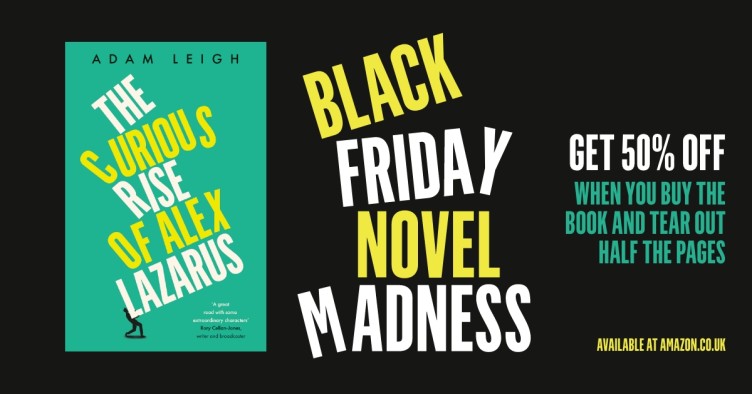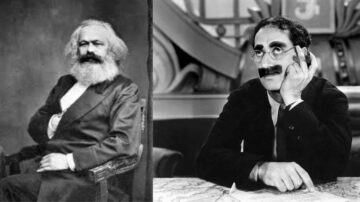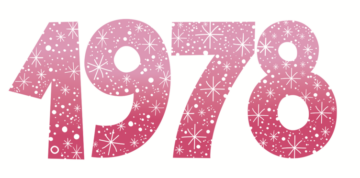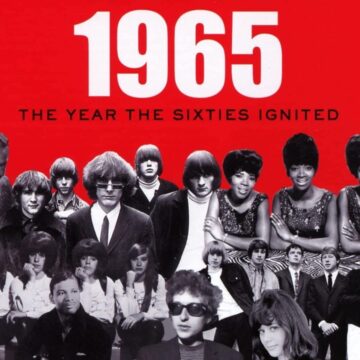As a lover of musical theatre, (were the jazz hands a giveaway?) Cole Porter’s lyrics for Anything Goes take some beating. They address the fundamental pace of change of modern living with a wit and poetry that is timeless.
The world has gone mad today
And good’s bad today,
And black’s white today,
And day’s night today,
And that gent today
You gave a cent today
Once had several chateaux
The song was written in 1934 and yet is very prescient about how retail behaviour has subsequently changed. In those days if you mentioned Black Friday, it referred to Friday September 29th 1869, when two Wall Street Financiers Jim Fisk and Jay Gould bought a significant amount of US gold in the hope of the overall price soaring but accidentally crashed the market. Whoops.
It wasn’t until the 1950s that it was associated with post-Thanksgiving sales in the US, although the concept of fuelling a spending-frenzy goes back to 1924 when Macey’s introduced their parade to galvanise the New York masses into parting with their money after eating their turkey.
Black Friday was only introduced in the UK by Amazon in 2010 and became famous when the good shoppers of ASDA (at that time owned by Walmart) started to fight in the aisles over cheap TVs. By 2019, Barclaycard reported a new peak of 1,184 transactions per second. Indeed, most retail analysts point to it being now more a case of Black Fiveday as the promotions are constructed over a much longer timeframe to maximise impact.
The thing about Black Friday is that it tends to engender a collective sense of desperation amongst consumers and retailers alike. The former is cajoled into an apocalyptic belief that if they don’t succumb to the 50% discounts, they will not be able to afford to buy anything for the rest of the year, whilst the latter spend enormous creative energy on increasingly daft language to encourage them to do so. Back in my agency days, Argos once asked us to produce artwork for a promotional line they mandated of “Yellow Wednesday. Like Black Friday. Must end Tuesday.” It’s hard enough getting the little blue pens to write in store without having to decode this level of trading complexity.
Consumers are of course more demanding and the opportunities for promotional sophistication have proliferated. Most of what we buy is now done from the comfort of a device and the knowledge that you can print out a label at home to return it if it doesn’t fit with no need to don a mask (or not) and go shopping.
Cole Porter goes on to observe in the song that we live in world in which the reporting of global events in the media impinges significantly on our mental equilibrium.
Just think of those shocks you’ve got
And those knocks you’ve got
And those blues you’ve got
From that news you’ve got
And those pains you’ve got
(If any brains you’ve got)
From those little radios.
It seems that we are continually in thrall to the unexpected shifts in human behaviour. A term which described a financial crisis became a US post-Thanksgiving shopping celebration and is now a global invocation by brands and retailers over a weeklong period to change our buying behaviour. And it doesn’t stop there.
Over the last few months, Linkedin changed the tabs on posting a job ad on its Recruiter site. There is a new drop-down box to describe Workplace which offers the terms On Site, Remote and Hybrid. Two years ago, the word hybrid on a job post would have suggested only that your company car was going to be a Prius. Now, it seems perfectly understandable. When I began my career, working from home was a day spent in the kitchen allegedly writing a presentation. In truth, it was an excuse to wait in for an all-day call from British Gas to fix your boiler.
Disruptive change has always been a backdrop to running a business but now the disruption is on a daily rather than an annual basis. McKinsey reported in a 2016 study on corporate transformation that ‘It’s relatively rare for transformation programs to succeed; many surveys, including our own, put the success rate at less than 40 percent’. This does not augur well for businesses if we ever emerge from the cover of pandemic chaos. It suggests that there needs to be more urgent priority given to identifying radical change.
Which brings me back once more to the philosophy of Cole Porter. My question is what are the business taboos you are going to break in your organisation? What decision or behaviour that was once unthinkable is now enticing? What caution will you through into which wind?
Eventually we all come to learn that the unfamiliar (not being in the office, wearing casual clothes to work, sharing a job, working 4 days a week, paying men and women the same salary to do the same job, diversity) should now be the norm. Why don’t you sit down as a leadership team and identify 5 things that you can do now for your business that would have once heralded laughter, derision, and a perhaps even a rapid exit interview.
The exciting part is that anything goes.
In the meantime, my book The Curious Rise of Alex Lazarus has its own Black Friday campaign of its own. Check out my reviews @amazon.co.uk. You will see that it is an entertaining read and can give you something to do if you can’t afford to go out, having spent all your money shopping for stuff you don’t need.



